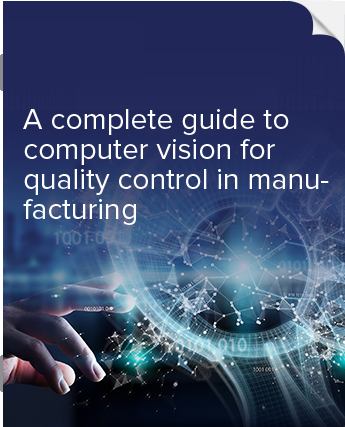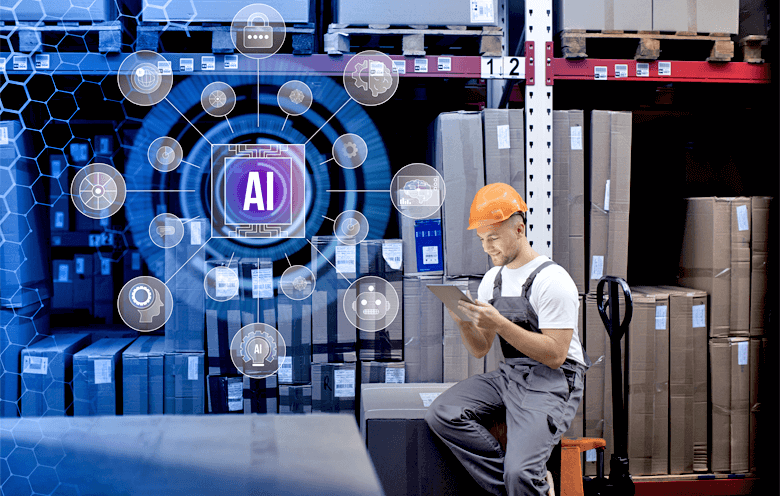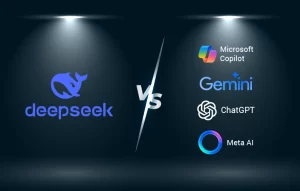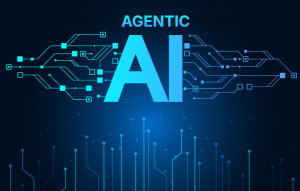In a world that’s ever-changing, managing facilities has come a long way from being a manual and labor-intensive task. Thanks to advancements in artificial intelligence (AI) and computer vision, facility management has stepped into the future, offering remarkable benefits in terms of security, energy efficiency and resource optimization.
The global computer vision market size was valued at USD 14.10 billion in 2022 and is expected to grow at a compound annual growth rate of 19.6% from 2023 to 2030. – Grand View Research
Although the concept of using AI and computer vision (CV) in facility management might sound futuristic, it’s already reshaping the industry. In this blog, we’ll explore how these cutting-edge technologies are transforming facility management, starting with their role in enhancing security through surveillance and intrusion detection.
We’ll look at how it improves security measures, helps optimize energy consumption and predicts maintenance needs, ushering in a new era of efficiency and sustainability in facility management.
Before we dig in, you may like to read about the powerful applications of computer vision in manufacturing.
The role of computer vision and AI for facility management
In your role as a facility manager, recognizing the significance of computer vision and AI is key. These advanced technologies have transformed how you manage facilities. Here’s why they should matter to you:
- Enhanced oversight: With computer vision, cameras and sensors ‘see’ and provide real-time data. AI then analyzes this data, aiding proactive decision-making for better facility oversight.
- Improved security: The synergy of computer vision services and AI enhances security by identifying anomalies and potential threats, keeping your facilities more secure.
- Optimized energy consumption: AI-driven analytics adjust systems based on usage patterns, optimizing energy consumption. This not only saves costs but also contributes to sustainability efforts.
- Preventing downtime: Predictive maintenance powered by AI prevents equipment failures, reducing downtime and boosting operational efficiency in your facilities.
In essence, computer vision and AI serve as driving forces, bringing a more secure, energy-efficient, and resource-optimized approach to your facility management responsibilities.
Benefits of computer vision and AI in facility management
1. Optimizing space utilization and layout
Efficiently managing your workspace is a priority for you as a facility manager, aiming to eliminate wasted resources and enhance productivity. Leveraging the power of AI and computer vision services plays a pivotal role in achieving this goal. Here’s how:
- Optimized layouts: AI-driven space management tools analyze occupancy patterns and usage data, allowing me to create layouts that maximize space utilization while ensuring easy access to essential resources.
- Dynamic reservation system: The implementation of AI allows for dynamic reservation of office space based on real usage patterns. This not only minimizes scheduling conflicts but also boosts overall productivity among employees.
- Real-time monitoring and adaptation: Real-time monitoring using AI enables adaptive adjustments in lighting, heating, and cooling based on occupancy. This not only saves energy when spaces are unoccupied but also contributes to our sustainability goals.
- Ensuring health and safety: AI-powered cameras and sensors play a crucial role in maintaining social distancing by accurately detecting the number of people in a room, aligning with health and safety guidelines.
- Automation for efficiency: By automating various tasks, AI helps me reduce operational costs, improve employee satisfaction, and create an environment that is both flexible and adaptable to changing needs.

A complete guide to computer vision for quality control in manufacturing
Whether you want to learn how to design a computer vision system for quality control (just by following six steps) or know how to use computer vision solutions for quality control in manufacturing, your answers are just a download away from this whitepaper.
2. Predictive maintenance of equipment
As the owner of a facility, it’s crucial to keep things running smoothly, and the role of computer vision plays a significant part in achieving this goal. You know that equipment problems can mess up work and cost a lot. Seeing how things are changing, using AI, including computer vision, for predictive maintenance services fits well with your goal to keep your facility working at its best. Here’s why AI-powered predictive maintenance, with a focus on computer vision, matters for you:
- Early issue identification: AI algorithms analyze equipment data, identifying early warning signs. This empowers me to schedule maintenance proactively, preventing breakdowns and extending equipment lifespan.
- Proactive maintenance scheduling: Instead of relying on fixed schedules, predictive maintenance leverages AI to analyze sensor data and historical performance, predicting potential equipment failures.
- Reliability and cost reduction: The outcome is heightened reliability, reduced maintenance costs, and uninterrupted operations. Predictive maintenance services prove particularly valuable for critical equipment like HVAC systems, elevators, and manufacturing machinery.
- Energy efficiency and sustainability: Beyond enhancing equipment performance, predictive maintenance contributes to energy efficiency and sustainability by minimizing unnecessary maintenance interventions.
- Advancements in AI: With continuous advancements in AI, predictive maintenance models are poised to become more accurate and capable. This means actionable insights for facility managers like me to ensure smooth facility operations.
3. Data privacy and ethical considerations
As a facility manager embracing AI for its numerous benefits, it’s crucial to recognize that the integration of artificial intelligence, including computer vision, comes with ethical and privacy considerations that demand careful attention. Incorporating these ethical considerations into your AI-driven facility management strategy ensures that technology aligns seamlessly with your values and the expectations of those involved. Here’s why ethical AI use, with a focus on computer vision, matters to you:
- Transparent and ethical practices: You play a pivotal role in ensuring transparent and ethical data collection and analysis. Establish clear policies and guidelines for AI use in monitoring and facility management.
- Balancing surveillance with privacy: Incorporating AI and computer vision for surveillance and data collection requires a delicate balance. It’s essential to respect individual privacy and adhere to regulations.
- Anonymizing and protecting data: Safeguard data by anonymizing it and implementing robust protection measures. This helps prevent unauthorized access or misuse, reinforcing your commitment to ethical practices.
- Staying informed on regulations: Keep yourself updated on evolving privacy laws and regulations concerning AI and data management. This knowledge ensures compliance and demonstrates your dedication to staying within legal and ethical boundaries.
- Building trust: Adhering to best practices not only ensures compliance but also builds trust with employees, tenants, and customers. Demonstrating ethical considerations aligns with corporate values and societal expectations.
Check out case study on how facility management firm uses computer vision for better security
Real-world use cases of computer vision in facility management
AI and computer vision services are revolutionizing facility management in various ways:
- Walmart employs AI-powered cameras with computer vision to monitor stores, prevent theft and enhance security.
- Google optimizes energy consumption in data centers by integrating AI algorithms with computer vision capabilities.
- Amazon utilizes computer vision through AI to predict equipment failures in its warehouses, ensuring proactive maintenance.
- FedEx enhances vehicle fleet management by leveraging computer vision alongside AI for precise tracking and coordination.
- WeWork harnesses computer vision through AI to optimize space utilization in its dynamic coworking environments.
Future trends and possibilities
As you navigate the realm of AI in facility management, exciting developments lie ahead. Here’s why the future matters for you:
- Integration of IoT: The journey is just starting, and emerging tech like the Internet of Things (IoT) will make AI-driven systems even more capable, creating seamless and interconnected facilities for you.
- Evolution of machine learning: Machine learning (ML) will keep advancing, making predictive analytics more accurate and proactive. Your facilities will become smarter, adapting in real time to changing needs and conditions.
- Focus on sustainability: For you, sustainability and energy efficiency will stay in the spotlight. AI will play a central role in reducing environmental impact, aligning with your commitment to a greener approach.
- AI-powered communication: AI-powered chatbots and virtual assistants will simplify communication and issue resolution for your facility management teams and occupants, making interactions smoother.
- Endless possibilities: As technology advances, possibilities for managing and optimizing facilities will grow. Embracing these innovations ensures you thrive in the evolving landscape of facility management shaped by AI.
The final say
In summary, AI and computer vision transform facility management, enhancing security, energy efficiency, and sustainability. Prioritizing ethics in AI adoption builds trust for success. If you adopt CV and AI-driven facility management services to keep your organization at the forefront of efficient and sustainable facility management, talk to our experts.









